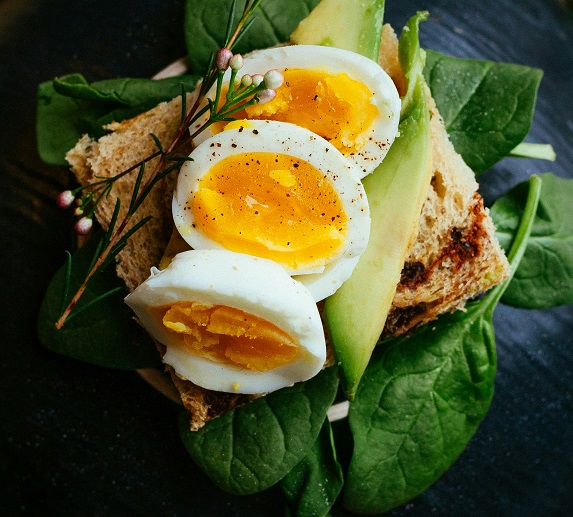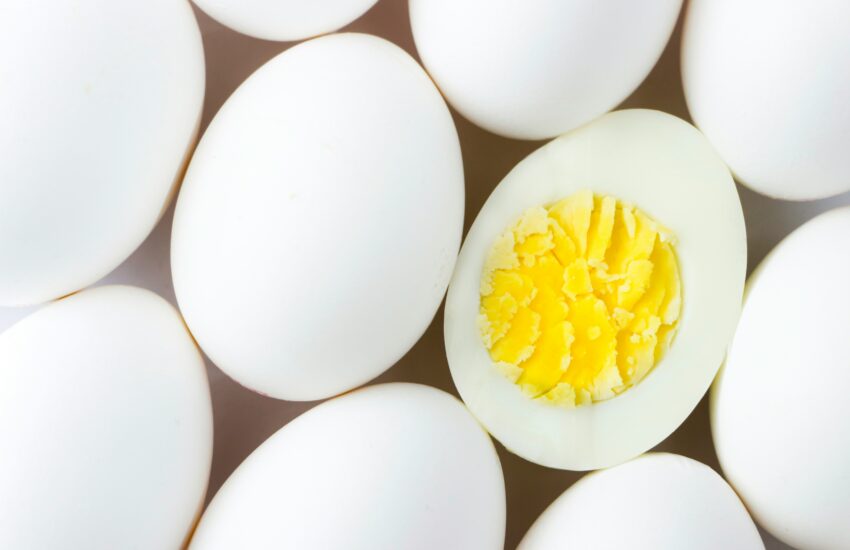Introduction
Protein is an essential macronutrient required for the growth, repair, and maintenance of tissues in the body. It plays a crucial role in various physiological processes, including muscle development, immune function, and hormone production. While protein can be obtained from both animal and plant-based sources, eggs and paneer are notable examples of high-protein foods with distinct nutritional profiles and benefits. Mohit Tandon from Chicago suggested Eggs vs paneer: Which one is a great source of protein?
Understanding Protein
Proteins are composed of amino acids, often referred to as the building blocks of protein. There are twenty amino acids, nine of which are considered essential because the human body cannot synthesize them independently and must be obtained through diet. Proteins derived from animal sources such as eggs and paneer typically contain all nine essential amino acids in adequate proportions, making them complete proteins.
Eggs: The Versatile Protein Powerhouse
Eggs are widely recognized for their nutritional density and versatility in culinary applications. They have been a dietary staple across cultures for centuries, valued not only for their protein content but also for their rich nutrient profile and culinary adaptability. – Mohit Tandon Chicago
Nutritional Composition of Eggs
Eggs are a nutrient-dense food, providing a range of essential vitamins, minerals, and antioxidants in addition to protein:
- Protein Content: Firstly, A large egg typically contains around 6-7 grams of protein, with the majority found in the egg white (albumen). The protein content can vary slightly depending on the size and type of egg.
- Amino Acid Profile: Eggs provide all nine essential amino acids in optimal proportions, making them a complete protein source. This ensures that the body has access to the necessary building blocks for protein synthesis and tissue repair. – Mohit Tandon Chicago
- Vitamins: Eggs are rich in vitamins A, D, E, and B vitamins (including B12 and folate). These vitamins contribute to various physiological functions such as vision, immune health, and energy metabolism.
- Minerals: They are a good source of minerals such as iron, zinc, phosphorus, and selenium, which are essential for maintaining bone health, immune function, and antioxidant defense.
Health Benefits of Eggs
- Muscle Development: The high-quality protein in eggs supports muscle growth and repair, making them an ideal dietary choice for athletes and individuals engaged in physical activity.
- Satiety: Protein-rich foods like eggs help promote feelings of fullness and satiety, which can aid in weight management and reduce overall calorie intake.
- Eye Health: Eggs are rich in lutein and zeaxanthin, antioxidants. These antioxidants support eye health and may reduce the risk of age-related macular degeneration.
- Choline: Eggs are one of the best dietary sources of choline, a nutrient important for brain health, nerve function, and liver metabolism.
Culinary Versatility
Eggs are incredibly versatile in the kitchen, suitable for various cooking methods including boiling, frying, scrambling, and baking. They can be enjoyed on their own, incorporated into dishes such as omelets, frittatas, salads, and sandwiches, or used as a binding agent in baking recipes. – Mohit Tandon Chicago

Paneer: The Protein-Rich Dairy Delight
Paneer, also known as Indian cottage cheese, holds a special place in Indian cuisine and vegetarian diets worldwide. It is prized for its high protein content, creamy texture, and ability to absorb flavors in cooking.
Nutritional Composition of Paneer
Paneer is primarily composed of:
- Protein Content: Paneer is exceptionally rich in protein, typically containing 18-20 grams of protein per 100 grams. This makes it a concentrated source of dietary protein, particularly beneficial for individuals following vegetarian or plant-based diets.
- Fat and Calories: It is also relatively high in fat and calories compared to eggs, with approximately 260-280 calories per 100 grams. The fat content contributes to its creamy texture and satiating properties.
- Calcium: Paneer is a good source of calcium, essential for bone health, muscle function, and nerve transmission. Calcium absorption from paneer is enhanced when consumed with vitamin D-rich foods or exposure to sunlight.
Health Benefits of Paneer
- Muscle Building: Especially, The high-quality protein in paneer supports muscle maintenance and repair. This makes it an excellent dietary choice for vegetarians and individuals seeking protein alternatives.
- Bone Health: Calcium and phosphorus in paneer contribute to bone strength and density, reducing the risk of osteoporosis and bone fractures.
- Satiety: The combination of protein and fat in paneer promotes feelings of fullness and satiety, making it a satisfying addition to meals and snacks.
- Digestive Health: Paneer contains probiotics that support gut health and digestion, aiding in nutrient absorption and promoting a healthy digestive system.
Culinary Applications
Paneer is a versatile ingredient in Indian cuisine, commonly used in dishes such as curries, gravies, stir-fries, and desserts. Its mild flavor and ability to absorb spices and sauces make it a popular choice for both savory and sweet preparations. Paneer can be grilled, sautéed, or crumbled into salads and wraps, adding protein and creamy texture to dishes.

Comparison of Eggs and Paneer
Protein Content and Quality
- Eggs: Provide around 6-7 grams of protein per large egg, with a complete amino acid profile. They are highly bioavailable and easily digestible, making them ideal for supporting muscle growth and repair.
- Paneer: Contains approximately 18-20 grams of protein per 100 grams, making it a dense protein source. It also offers all essential amino acids, although it is higher in calories and fat compared to eggs.
Nutrient Density
- Eggs: Rich in vitamins (A, D, E, B vitamins) and minerals (iron, zinc, phosphorus, selenium) that support overall health and well-being. They are particularly beneficial for eye health, brain function, and immune system support.
- Paneer: Provides significant amounts of protein, calcium, and phosphorus, essential for bone health and muscle function. It is also a good source of probiotics that promote digestive health.
Culinary Versatility and Usage
- Eggs: Versatile in cooking methods and culinary applications, suitable for breakfast, lunch, dinner, and baking. They can be enjoyed in various dishes or consumed on their own as a quick and nutritious snack.
- Paneer: Commonly used in Indian cuisine to add protein and texture to curries, snacks, and desserts. It absorbs flavors well and can be grilled, sautéed, or crumbled into dishes for added protein content.
Dietary Considerations
- Eggs: Suitable for most dietary preferences, including omnivorous, vegetarian, and ketogenic diets. They are allergenic for some individuals, requiring caution for those with egg allergies.
- Paneer: Ideal for vegetarian and lacto-vegetarian diets, providing a rich source of protein and nutrients. It is high in saturated fat and calories, requiring moderation for individuals watching their fat intake or calorie consumption.
Conclusion
Both eggs and paneer are valuable sources of protein with distinct nutritional profiles and culinary applications. Eggs are renowned for their complete protein content, essential vitamins, and versatility in cooking, making them a staple in many diets worldwide. Paneer, on the other hand, offers a concentrated source of protein, calcium, and probiotics, making it a preferred choice for vegetarians and individuals seeking alternative protein sources.
The choice between eggs and paneer depends on individual dietary preferences, nutritional needs, and culinary preferences. Incorporating both into a balanced diet can provide a diverse array of nutrients, support muscle health, and contribute to overall well-being. Whether enjoyed as part of a savory breakfast or incorporated into a flavorful curry, eggs and paneer offer delicious ways to meet your protein requirements and enhance your culinary repertoire.
By understanding their nutritional benefits and culinary versatility, you can make informed choices that support your health and dietary goals. Whether you’re preparing a hearty breakfast omelet or a satisfying paneer tikka masala, both eggs and paneer contribute to a nutritious and delicious dining experience.
